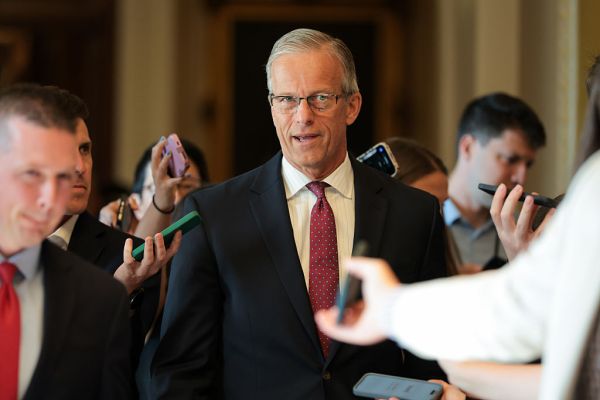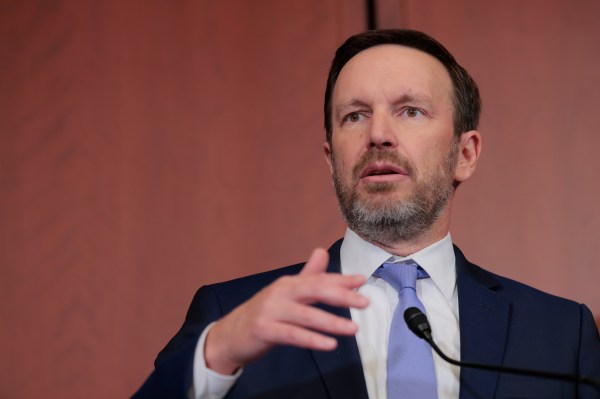Disinviting controversial speakers from campus speaking engagements is nothing new —the free speech watchdog group FIRE has a database that tracks such occurrences dating back to 1998—but the practice reached a new level in 2016 when conservative Ben Shapiro spoke at Cal State-Los Angeles. First, the university president tried to cancel the speech but relented. Then, as Shapiro spoke, a protester set off a fire alarm to try to force an evacuation.
Fast forward a few years, and it’s not events that some are trying to cancel, but people themselves. Did you tweet something offensive back when you were 16? Someone will try to get your college admission revoked. When The Atlantic hired conservative writer Kevin Williamson last year, he told his new boss there would be a campaign to have him fired. His boss scoffed. As Williamson wrote a few weeks later, “My first piece appeared in the Atlantic on April 2. I was fired on April 5.”
Atlantic contributor Yascha Mounk just last week listed some examples of how ordinary American citizens have had their lives destroyed and jobs lost over misunderstandings and overreactions to what appeared bigoted to a hypersensitive and overly online public. A Washington Post story “outing” a non-famous woman for having worn an offensive costume years ago aroused so much shock no one at the paper itself could defend it—yet done it was.
Welcome to life under the Great Awokening.
A massive, quasi-religious political movement, driven primarily though not exclusively by upper-middle class white Americans, begun under Barack Obama and supercharged under Donald Trump, it piggybacks on and radicalizes many an American cause—from racial equality to matters of cultural history to the question of defining diversity. Adherents seek to quash debate in newsrooms, threaten book publishers, and get people fired for having the wrong ideas.
It also drives the often indiscriminate efforts to take down statues, “defund the police,” to “abolish ICE,” pass a Green New Deal, and generally remake the country.
This is no mere partisan cause. It is every bit as zealous and righteous as America’s previous religious revivals. It is driven by a mixture of social and philosophical ideas, but nevertheless gets its energy and power from an ever-increasing zeal. However, it lacks any coherent organization or leaders who can be targeted and co-opted or at least defeated; it is a mob leading a mob, and woe to any who step out of line.
Reason and logic don’t drive this movement, so it cannot be reasoned with. Rather, as professor Alan Jacobs describes, it is the visceral, instinctive aversion to certain kinds of identifiable secularized “sin” and “impurity.” Adherents demand safety not only for their physical well-being but also their psychological health, and one might even say their spiritual health.
No one who knows anything about this kind of popular religious thinking—personally or indirectly—can dismiss the power and the danger of this kind of cultural crusading.
As I noted in an essay years ago, culture wars may sometimes end in Congress or the Supreme Court, but they don’t start there and are certainly not won or lost there. This is why fulsome anger at the Republican Party establishment, however justified on the merits, is misplaced. Every Republican leader and figure could condemn this movement in tones that would make Sohrab Ahmari blush, and it would make little to no difference on elite opinion. The Democratic Party might be able to do more, but it has no political incentive to do so, as most of its members are on board to one degree or another.
This is a battle to be fought and won (or lost) in the world of private but powerful cultural institutions, especially technological corporations that host and often fund popular and social media, culture creating institutions like Hollywood and television producers, and particularly influential universities and publications.
The idea that government should regulate and restrain said institutions somehow, especially Sen. Josh Hawley’s proposal to repeal Section 230, is perhaps well-meaning but sorely misplaced. First, because it gives the same power to Democratic administrations to regulate internet media in the name of cultural progressivism, and secondly, because the manpower recruited for the purpose of regulation will likely come almost exclusively from the ranks of the elite college educated Americans who are causing all the trouble in the first place.
The same is true of a war to make places like universities “politically diverse” by fiat through state funding. While the impulse is understandable, it is doubtful it will have an effect on the Ivy League schools conservatives hate so much—all located in deep blue states—but will likely cause harm to already struggling institutions in red states by adding regulation and making funding even harder.
So, what to do?
Before deciding on tactics, conservatives need to coalesce broadly on a strategy.
The first and easy option is, of course, to simply surrender and join up with the mob. Public opinion, at least on the left and among the young, argues for such a course. It’s over, we lost, may as well join the winning side.
But this is folly.
First, conservatives stand for what they consider to be right and true, even when that view is deeply unpopular. If we fought only for whatever polled well, we would not be the rock in the storm we ought to be, but a useless weathervane, easily discarded.
Second, it doesn’t work. One need only look at the long and ever-growing list of men and women who fought for liberal and progressive causes their whole lives—only to be cast out as pariahs because they took a wrong half-step—to realize there’s no riding that tiger. Just recently, Harry Potter author J.K. Rowling encountered backlash for expressing concern that the transgender movement was “erasing the concept of sex.” There were no half-deals to be made with the devil that is Trump, and there are no compromises to be had with those who wish to hunt him down.
Another option is to take the rejectionist approach—anything the woke left opposes must be right, anything P.C. must be baseless, any institution commanded by the woke must be mocked. This is the Charlie Kirk approach to American life, one with wide appeal on the right.
There is something very attractive in being ironic and edgy rebels rather than stoic adults in the face of the righteous mob. It’s very American, really. But this approach also contains very real dangers, which became apparent by 2016.
For starters, not everything that the “woke” say is wrong, per se. We conservatives pride ourselves on intellectual integrity, and this demands that we recognize that sometimes the other side is right. Not on everything, not as often as they think—but more often than we used to admit. It’s true on race relations, and it’s also true when it comes to certain aspects of the lives of LGBTQ Americans.
More importantly, an edgy, endlessly questioning approach can easily deteriorate into rank nihilism. Preach to people on the evils of specific professors, politicians, and judges, and they will soon desire to “burn it all down” indiscriminately. If we wish to conserve, repair, maintain what we think is good and true, doing nothing but showing how “everything sucks” will result not in guardians of virtue but just another angry mob.
We can and should criticize the Great Awokening when and where warranted, but not at the expense of that which we wish to defend—the Constitution, the importance of strong communities, family, religion, diversity of opinion, the free search for the good, the true, and the beautiful. We can draw lines, move only when we want to and concede only when we wish—but that’s a far cry from being swept up or saying “no” to everything.
What of tactics? When Trump won, I thought I identified a positive development, in which reporters and commentators from the moderate right were being brought in to mainstream media outlets and more of American society could be heard. I think that’s over now; the row in the New York Times over Tom Cotton’s op-ed is likely just the beginning of a mass purge of anyone who doesn’t toe the line.
While conservative outlets appeal to those institutions to stand by their own principles, the people with the power to put their foot down and say “no” seem too committed or too scared to stop this train. So it was in the 1960s when the first such eruption occurred, so it will be now.
We need to instead form alternative nodes of culture and information. Not just ones where conservatism or right-wing thinking reigns but more ecumenical outlets and institutions where people from the right to center-left can feel more at ease. If the Great Awokening wishes to crush moderate discourse, then we must re-create it somewhere else.
That means we need to integrate into or build universities and institutions that are less vulnerable to woke pressure and open to becoming nodes of conservative-oriented discourse. We need production companies for all sorts of culture that will aim not to just make money, but which will aim to be an alternative to the present Woke Capital model prevalent throughout America, with its immediate kowtowing to every progressive fad of the moment. And for them to truly succeed, they will need to similarly be big tents.
To this end, we will need allies, and the more the better. Not just among the elites, but also among the more conservative members of ethnic and racial minorities living throughout America. Milton Friedman liked to say that the challenge is not to get the right people elected, but to make it profitable for the wrong people to do the right thing. If we want to somehow counter the white-hot revolutionary zeal driving the woke, we need people who may never vote Republican and who certainly will not tolerate bigotry but who may be more amenable to being against the mob. We need to talk to them wherever they are—on college campuses, in gaming groups, in corporations, and anywhere else we can find them. We must learn to form alliances with those who will stand up to intolerance. Efforts such as these are infinitely more important than the next election or Supreme Court appointment.
We face a determined, powerful, and culturally ascendant movement bent on total victory—regardless of whether it’s right or wrong in any given struggle. If we wish to show Americans another way, we’re going to need to persuade them. Not parties. Not courts. Our fellow citizens.
Good luck.






Please note that we at The Dispatch hold ourselves, our work, and our commenters to a higher standard than other places on the internet. We welcome comments that foster genuine debate or discussion—including comments critical of us or our work—but responses that include ad hominem attacks on fellow Dispatch members or are intended to stoke fear and anger may be moderated.
With your membership, you only have the ability to comment on The Morning Dispatch articles. Consider upgrading to join the conversation everywhere.